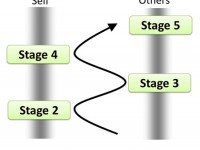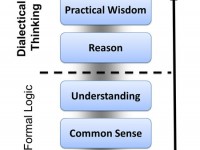Gradually, CDF is emerging as a potent business development tool, in contrast to a coaching or assessment tool. The new course starting February 26, 2015, will demonstrate the impact of the CDF methodology on your daily organizational work, planning, decision making, and work in teams. You'll begin to understand better the concept of "requisite organization" that is an integral part of CDF. The second course, starting on February 23, 2015, goes rather into depth about your own thinking, helping you to understand the "frame of reference" based on which you think, and how you could start using more advanced thinking techniques. We will explore DTF, the Dialectical Thought Form Framework which will be mind-opening experience for you. Prior questions to me are welcome (otto@interdevelopmentals.org). See also the videos under NEWS. For managers, these courses are also available through personal hands-on mentoring centered on a personal business problem of your choice. Read More...
Tag: Course
Socio-Emotional Development
The essence of the socio-emotional dimension has to do with how adults differ in making meaning of their life and work experiences based on their opposing and intertwined needs of being autonomous and being included in a community of others. These two lifelong tendencies achieve a different balance at every developmental “stage”. Social-emotional differences between people manifest not only in their “thinking”, but since thinking precedes acting, also in their goal setting, decision making, and, most directly, in the relationships individuals develop with others. In this life-changing course, students learn in depth not only the theory of social-emotional meaning making as developed by the Kohlberg School at Harvard, but acquire the practical skills of using what they learn, whether in making cogent assessments, giving cogent feedback, coaching, or consulting. Read More...
Cognitive Development Toward Dialectic
The essence of the cognitive dimension of CDF has to do with how adults differ in making cognitive sense (rather than meaning) of their life and work experiences, thus with what they do and do not understand about the real world. These differences go far beyond “what is in the head” since how people construct the world conceptually precedes their actions in the world, and thus equally manifests in their activities, planning, goal setting, decision making, and execution of leadership functions. In most general terms, students learn to switch from “what” to think to “how” to think, thereby gaining fluidity of thinking based on an awareness of their present way of thinking that makes some things “unthinkable” to them. In this life-changing course, students gain insight not only into the theory of cognitive development and the development of dialectic, but also begin to apply dialectical thought forms in text analysis, in cohort discussion, and in coaching interventions with individuals and teams. Read more Read More...

